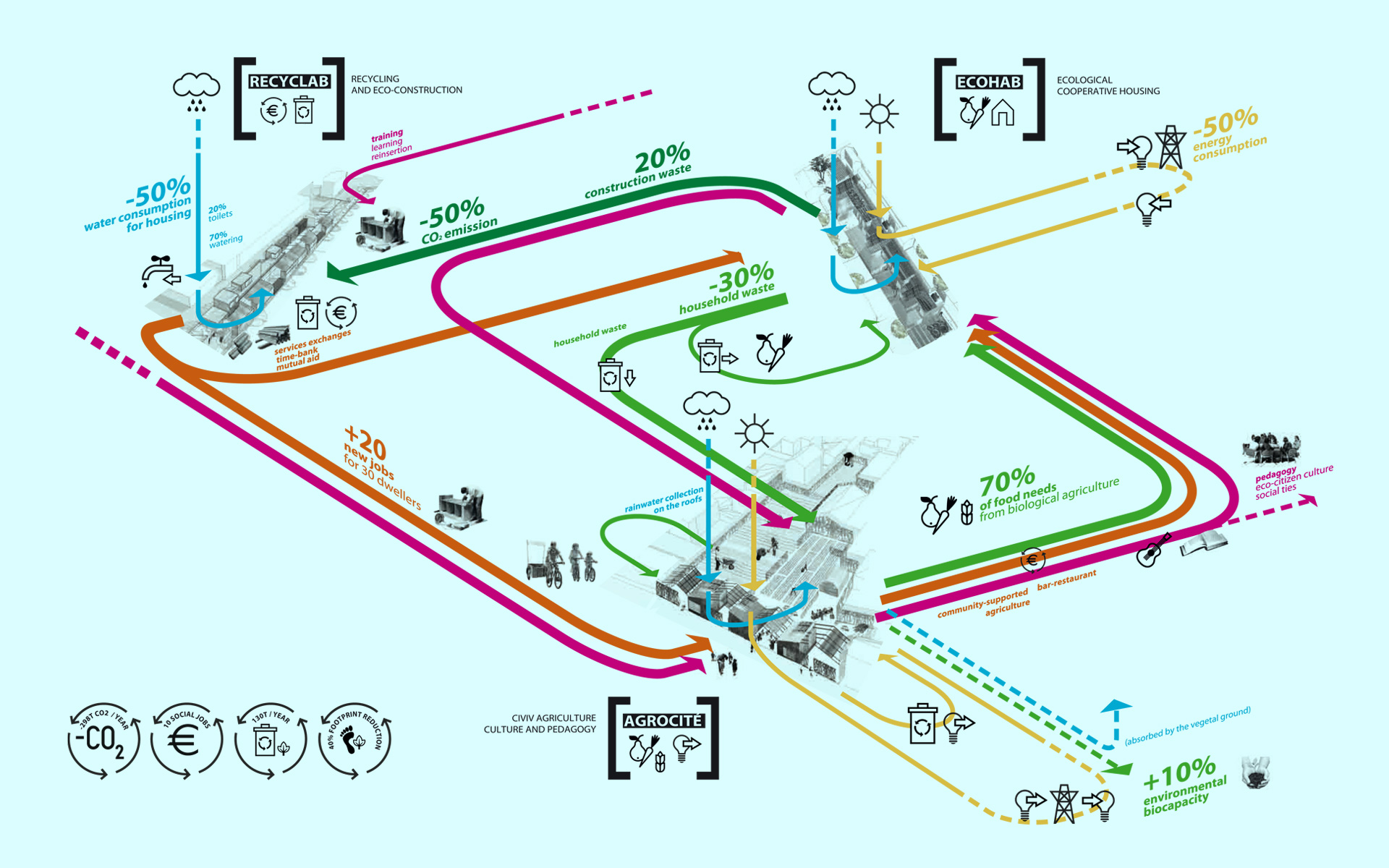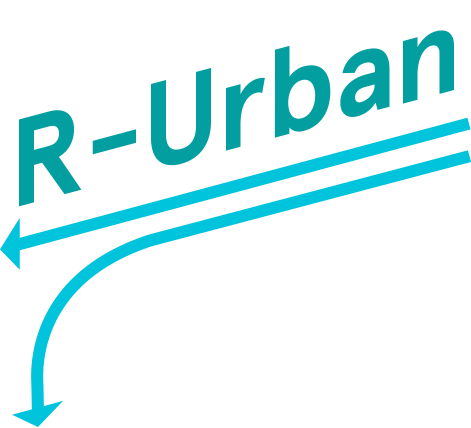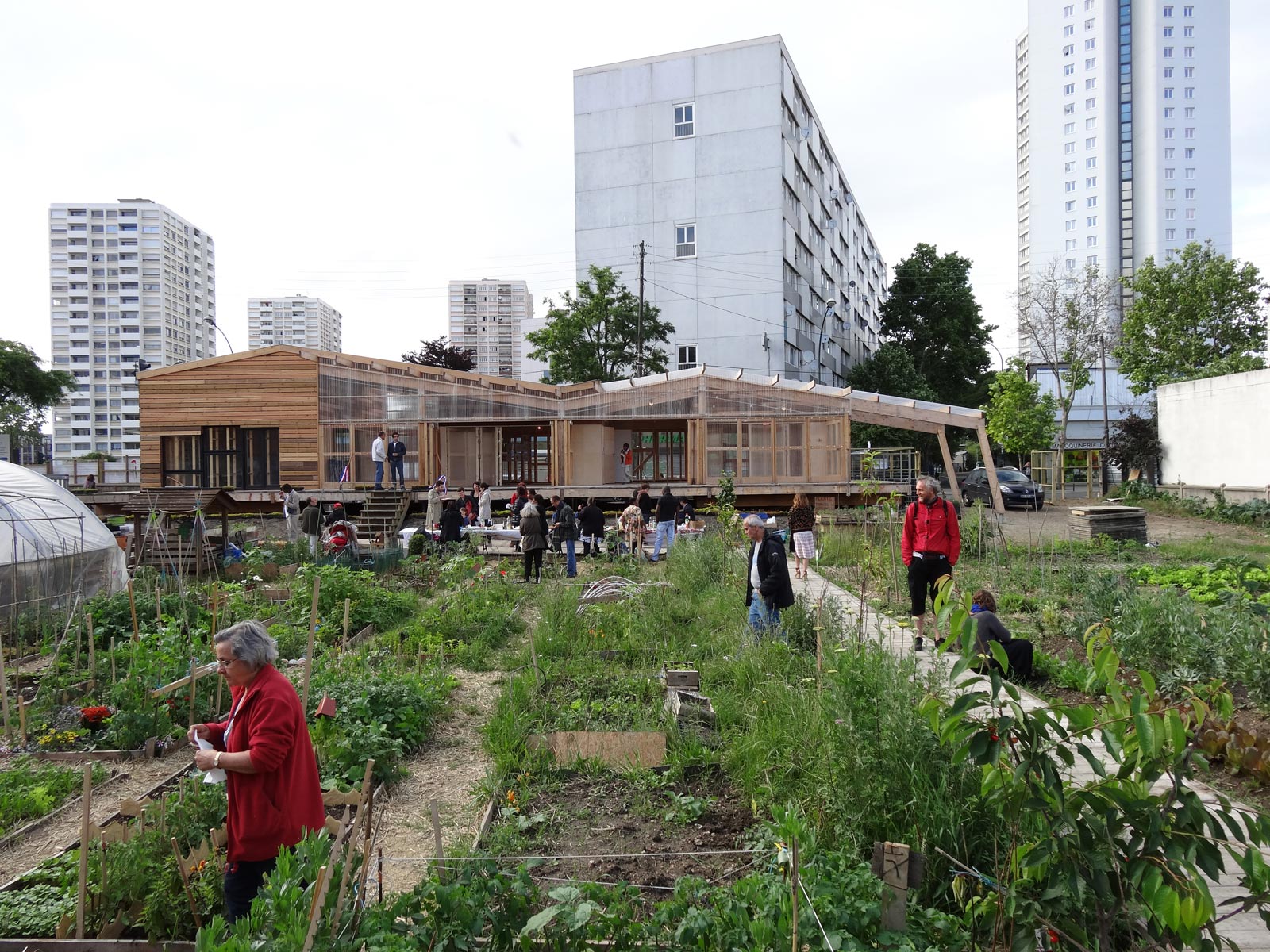-


Prototypes for an urban ecology
Colombes, 2008 – present
-
The last time uncube caught up with Atelier d’Architecture Autogérée (AAA) was in November 2012, when the French architect duo had just won the Zumtobel Group Award for their project R-URBAN. AAA was initiated over a decade ago by architects Doina Petrescu and Constantin Petcou, who since 2008 have been deeply invested in their R-URBAN experiment: a three-part initiative in the Paris suburb of Colombes that employs architecture as a fulcrum for leveraging an alternate economy and, in turn, creating a new social ecosystem.
Petrescu and Petcou chose Colombes as a site of intervention for its particular combination of lack and initiative: while the city of 80,000 is economically depressed, it has a longstanding culture of civic participation, with over 450 nonprofit organisations already existing there. As can be seen in their earlier work – notably Le 56 / Eco-interstice, a gathering place and community garden installed a vacant lot between two Paris buildings – AAA’s projects are careful and collaborative insertions into existing contexts rather than hermetic utopias built from scratch. This is not to say that R-URBAN does not hold any utopian inclinations.
After careful research, Petrescu and Petcou devised a three-part system to introduce in Colombes: AgroCité, focusing on urban agriculture and pedagogy; RecycLab, used for recycling and social economie; and EcoHab, a cooperative housing model. With strong emphasis on sustainability, these units attempt to demonstrate the viability of environmentally friendly urban practices and the potential for environmental and economic sustainability to be mutually supportive. Since the 2012 Zumtobel Award, AgroCité has become fully operational, and its local project managers are in charge of various micro-economic activities: distribution of vegetable baskets from local farmers, regional composting, a chicken coop, beehives, and workshops for activities like crochet, cooking, knitting and gardening. RecycLab is also underway, hosting flea markets, recycling materials, and even adding designers in residence. EcoHab is still in its planning phase, pending administrative and financial arrangements.
Previous page: The ecosystem of R-URBAN pilot facilities is mapped out. (All images: AAA)
-
 AgroCité is the first unit of R-URBAN to become fully-operational. The urban garden is an experimental testing ground for new ecological tactics, and the architecture provides a hub for workshops, classes, and meetings.
AgroCité is the first unit of R-URBAN to become fully-operational. The urban garden is an experimental testing ground for new ecological tactics, and the architecture provides a hub for workshops, classes, and meetings. -
R-URBAN creates jobs that allow people to teach each other, gaining agency and eventually taking over management of their own institutions. This may sound like a “software over hardware” method, but Petrescu and Petcou are quick to assert that “architecture remains at the core” of the initiative. The physical presence of the three units means they are not only resources and communication hubs, but “showrooms” in which to demonstrate the viability of the model on a larger scale – partners from Belgium, Spain, Romania, and Germany have shown interest.
Recently the team has learned that the municipal government of Colombes is incorporating R-URBAN in its current electoral campaign, and that the project constitutes a structural element of the proposed municipal policy for the 2014-18 term. Petcou says, “The capacity of architecture as a participatory strategy to have an effect on public policy is of extreme importance to us”. This highlights a fundamental and unique aspect of AAA’s approach: they do not propose citizens take everything into their own hands. Instead they attempt to renegotiate the very relationship between private citizens and public apparatuses. When public funds are drained as a result of global financial crises and a widespread neoliberal attitude towards public space, their proposed solution is not to “DIY everything”; instead, R-URBAN intends to show how political systems can be altered or appropriated by private citizens via careful social and spatial organisation. If there is a way to relocate agency within reach of the citizen, it is not to simply support public space with private means, but rather to renegotiate a symbiosis between crippled public systems and enterprising communities.
Beyond economic or ecological endeavour, R-URBAN is ultimately a socio-cultural experiment. If the way we spend our time, use our bodies and conceive of daily life is a key product of capitalist power systems, as Foucault would have it, then changing basic processes will feedback into changing the ecology of the city. Thus the “ecological” work of AAA is also about personal ecology; the ecology of the organism in a broader city network. They have even proposed a new daily schedule for community members: working for 8 hours, having free time for 8 hours, and sleeping for 8 hours. The objective is to establish an entirely new lifestyle, supporting and supported by a self-sustaining micro-economy. p (ew)
-
Search
-
FIND PRODUCTS
PRODUCT GROUP
- Building Materials
- Building Panels
- Building technology
- Façade
- Fittings
- Heating, Cooling, Ventilation
- Interior
- Roof
- Sanitary facilities
MANUFACTURER
- 3A Composites
- Alape
- Armstrong
- Caparol
- Eternit
- FSB
- Gira
- Hagemeister
- JUNG
- Kaldewei
- Lamberts
- Leicht
- Solarlux
- Steininger Designers
- Stiebel Eltron
- Velux
- Warema
- Wilkhahn
-
Follow Us
Tumblr
New and existing Tumblr users can connect with uncube and share our visual diary.
»Less is a bore.«
Robert Venturi
Keyboard Shortcuts
- Supermenu
- Skip Articles
- Turn Pages
- Contents


